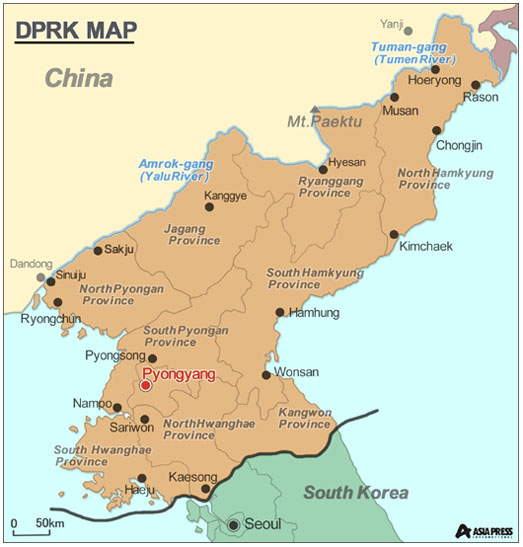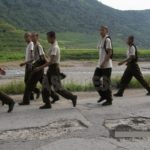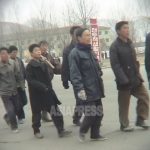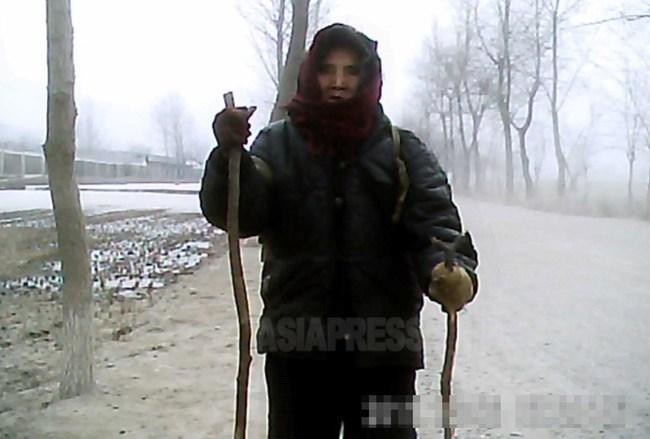
<Investigation Inside N. Korea>Famine in the provinces : “Many people have died from the start of May due to starvation and disease…” (1) The state’s food supplies have hit rock bottom
Amid the rise in people dying due to malnutrition and disease in North Korea’s provincial cities, there has been a dramatic increase in robberies and other crimes, along with people abandoning or neglecting their elderly parents or children. This article provides information about the situation in Hyesan, Yanggang Province, from three reporting partners in the area. (KANG Ji-won / ISHIMARU Jiro)
In the late 1990s, during the DPRK’s great famine, the entire country witnessed a rise in crime and people abandoning their children and elderly parents. The collapse of the public distribution system and people’s lack of cash and household items made it hard to find food – abandoning family members was the only way to survive.
In the 2000s, the situation in the country improved, with famine dissipating and the number of homeless people decreasing. Now, however, provincial cities are facing a humanitarian crisis similar to that of the 1990s.
This article summarizes information provided by three reporting partners in Yanggang Province from May 9 to May 26. ASIAPRESS used Chinese cell phones smuggled into the DPRK to communicate with them. The parentheses in the text below were added by the editor.
◆ Increase in crime
Robberies are occurring a lot (these days). The cousin of the head of the Socialist Women’s Union in one part of the city was hit in the head with a rock by a robber while riding her bike one night (in mid-May). She is still in a coma, and her bike and even the shoes she was wearing were all stolen (it is not clear what happened to the woman following this report).
Someone who visited a house in one part of the city said they wanted to get a drink of water, but then threatened (the family) with a knife and stole a video player. There’s been so many robberies these days that people are afraid to open their doors (for anyone). A lot of the robbers target people with a lot of money. There was an incident (in mid-May) where someone entered a party cadre’s house, knocked out the occupant with a club and then stole some rice.
Police patrols walk the streets almost every day, monitoring people who are walking around. We’ve been told to intensify security at our apartments, but what can anyone do against someone who would fight to the death? People are facing a situation of life and death, going to the mountains to pick what they can to eat whenever they have the time.
The district office supplied two kilograms of corn to households facing difficulties on May 7, but our neighborhood watch unit gave out corn to just two of the 10 families facing difficulties. That’s far from enough to survive on. People are just full of evil these days, getting into a lot of fights here and there. Some get into fights over money, asking those who borrowed money to give it back. It’s just a mess these days.
Families that can feed themselves are cautious and full of anxiety. People are even stealing unripe potatoes to eat from the farms, which has forced farms to start deploying security patrols earlier than usual.
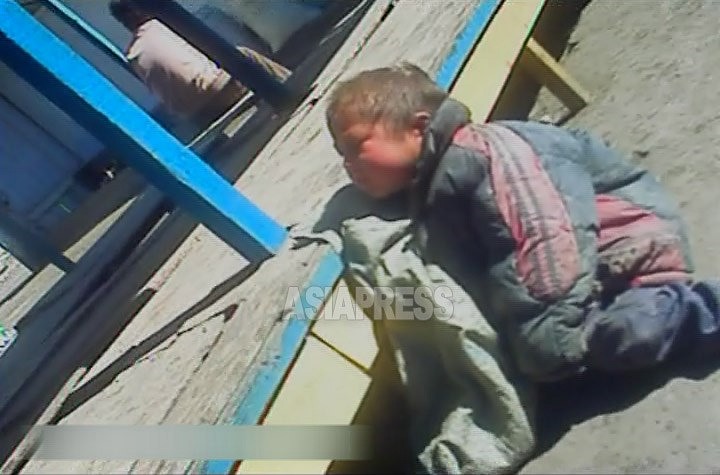
◆ People abandon their elderly parents and children
A police officer came to the neighborhood watch unit meeting on Wednesday (May 17) to warn that people who neglect or abandon their parents, divorce each other, neglect their children, or leave their registered residences without reporting it to their workplaces or social organizations will face severe punishment.
Sometimes people find out only after some time has passed that the parents they abandoned have died. There are also cases where elderly people who come out of their houses to beg do not know where their sons or daughters have gone.
Our neighborhood watch unit leader visits homes in danger of abandoning their elderly parents, but no special measures are put in place. All the authorities are saying is that people should “not abandon one’s parents because once food from China arrives it will be distributed immediately.”
When the authorities catch a homeless child, they confirm who the child lived with. The child is fingerprinted and taken back to their parents, but what’s the point? After all, the child left because there was nothing to eat at home. I’ve seen children sitting on the road in the evening just crying because their parents don’t return home.
◆ Homeless people are rounded up and mobilized for labor
The authorities in Hyesan Market are cracking down on homeless people, but the homeless can still be seen walking around. There are even homeless people who beg market sellers to let them hide under their stalls to avoid getting caught. The homeless people range in age from 10 to 60 years old. There’s nobody younger than that.
Older children are sent to farms or construction sites to work, but they end up running away, so the police have recruited former soldiers to monitor them.
There are people who just give up on life after failing to survive no matter how hard they tried. On May 14, a couple along with their six-year-old son bought a chicken, put some rat poison in it, and committed suicide by eating it. The child, luckily, didn’t die and was sent to an orphanage. But what will happen to him there?
On May 26, ASIAPRESS heard that state-run shops in Hoeryeong, North Hamgyung Province, provided one kilogram of white rice at 5,200 won to families facing difficulties in late May. The shops did not sell corn. The price of rice was 4,400 won in the early months of this year, which means that even state-set prices for rice are rising.
※1,000 North Korean won equals around 0.12USD.
The next installment will examine recent market trends and the circumstances surrounding state-run “grain shops.”
